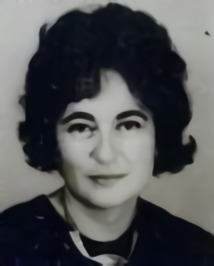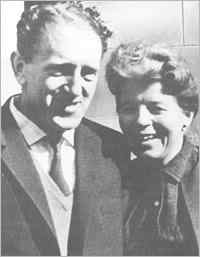Related Research Articles

Winnie Madikizela-Mandela, also known as Winnie Mandela, was a South African anti-apartheid activist and politician, and the second wife of Nelson Mandela. She served as a Member of Parliament from 1994 to 2003, and from 2009 until her death, and was a deputy minister of arts and culture from 1994 to 1996. A member of the African National Congress (ANC) political party, she served on the ANC's National Executive Committee and headed its Women's League. Madikizela-Mandela was known to her supporters as the "Mother of the Nation".

Walter Max Ulyate Sisulu was a South African anti-apartheid activist and member of the African National Congress (ANC). Between terms as ANC Secretary-General (1949–1954) and ANC Deputy President (1991–1994), he was incarcerated on Robben Island, where he served more than 25 years' imprisonment for his activism. He is known for his close partnership with Oliver Tambo and Nelson Mandela, with whom he played a key role in organising the 1952 Defiance Campaign and the establishment of the ANC Youth League and Umkhonto we Sizwe. He was also on the Central Committee of the South African Communist Party.

Alfred Baphethuxolo Nzo was a South African politician. He served as the longest-standing secretary-general of the African National Congress. He occupied this position (ANC) between 1969 and 1991. He was also the South African minister of foreign affairs from 1994 to 1999. He was also the first black health inspector in the country. The Alfred Nzo Award is now awarded to deserving health practitioners in South Africa.

Ahmed Mohamed Kathrada, sometimes known by the nickname "Kathy", was a South African politician and anti-apartheid activist.

Heloise Ruth First was a South African anti-apartheid activist and scholar. She was assassinated in Mozambique, where she was working in exile, by a parcel bomb built by South African police.
Elias Mathope Motsoaledi was a South African anti-apartheid activist and one of the eight men sentenced to life imprisonment at the Rivonia Trial in July 1963 and paternal uncle to South African politician and minister Aaron Motsoaledi. The Elias Motsoaledi Local Municipality in Limpopo province was named after him.

Denis Theodore Goldberg was a South African social campaigner, who was active in the struggle against apartheid. He was accused No. 3 in the Rivonia Trial, alongside the better-known Nelson Mandela and Walter Sisulu, where he was also the youngest of the defendants. He was imprisoned for 22 years, along with other key members of the anti-apartheid movement in South Africa. After his release in 1985 he continued to campaign against apartheid from his base in London with his family, until the apartheid system was fully abolished with the 1994 election. He returned to South Africa in 2002 and founded the non-profit Denis Goldberg Legacy Foundation Trust in 2015. He was diagnosed with lung cancer in July 2019, and died in Cape Town on 29 April 2020.

Lionel "Rusty" Bernstein was a Jewish South African anti-apartheid activist and political prisoner. He played a key role in political organizations such as the South African Communist Party (SACP) and the African National Congress (ANC). He helped form the Congress of Democrats to bolster white participation in the ANC, and he brought its allies together to establish a Congress of the People, working closely with Nelson Mandela.
The African Resistance Movement (ARM) was a militant anti-apartheid resistance movement, which operated in South Africa during the early and mid-1960s. It was founded in 1960, as the National Committee of Liberation (NCL), by members of South Africa's Liberal Party, which advocated the dismantling of apartheid and gradually transforming South Africa into a free multiracial society. It was renamed "African Resistance Movement" in 1964.

Burger's Daughter is a political and historical novel by the South African Nobel Prize in Literature-winner Nadine Gordimer, first published in the United Kingdom in June 1979 by Jonathan Cape. The book was expected to be banned in South Africa, and a month after publication in London the import and sale of the book in South Africa was prohibited by the Publications Control Board. Three months later, the Publications Appeal Board overturned the banning and the restrictions were lifted.
Zephania Lekoame Mothopeng was a South African political activist and member of the Pan-Africanist Congress (PAC).

Kate Molale was a South African political activist, between 1970 and 1975 she represented the ANC Women's League/Women's Section in the Women's International Democratic Federation.
Esther Barsel was a South African political activist and long-standing member of the South African Communist Party (SACP). She was a member of both her local African National Congress branch and the SACP's Johannesburg Central Branch.
Eleanor Kasrils was a Scottish-South African anti-apartheid activist.
Dr. Maitshwe Nchuape Aubrey Mokoape was a South African anti-apartheid activist and a leader of the Pan-Africanist Congress and Black Consciousness Movement. He was first arrested and detained at the age of 15. He studied and worked alongside political anti-apartheid activist Steve Biko. In post-apartheid South Africa, Mokoape became a physician.

Olivia Anne Marie Forsyth , agent number RS407 and codename "Lara", is a former spy for the apartheid government in South Africa. Having attained the rank of lieutenant in the Security Branch of the South African Police (SAP), Forsyth defected to the African National Congress (ANC) and was incarcerated at Quatro prison camp in northern Angola. Following her escape, Forsyth spent six months hiding in the British embassy in Luanda.
Bertha Gxowa was an anti-apartheid and women's rights activist and trade unionist in South Africa.

Sonia Bunting, OLS was a South African journalist, and a political and anti-apartheid activist. After being charged with treason and imprisoned, being detained a second time, and barred from publishing, she and her husband went into exile in London, where she joined the Anti-Apartheid Movement (AAM) and organised the World Campaign for the Release of South African Political Prisoners. When the African National Congress (ANC) ban was lifted in 1991, she returned to South Africa where she was involved in political activism until her death in 2001. She was posthumously honored by the government of South Africa with the Order of Luthuli in Silver in 2010.
John Kgwana Nkadimeng was a South African politician, anti-apartheid activist and South African ambassador in Cuba. Nkadimeng was awarded the Order of Luthuli in 2003 by President Thabo Mbeki and Isitwalandwe in 2019 by President Cyril Ramaphosa.

Devikarani Priscilla Sewpal Jana was a South African human rights lawyer, politician and diplomat of Indian descent. As a member of the African National Congress (ANC) during the anti-apartheid movement, she participated in both legal activism as well as in the underground movement to end apartheid. She represented many significant figures in the movement, including South African president Nelson Mandela, Winnie Madikizela-Mandela, Steve Biko, Govan Mbeki, Walter Sisulu, and Archbishop Desmond Tutu. Jana was one of the very few South Africans who had access to political prisoners, including Mandela, in the maximum security Robben Island prison, and served as an emissary for coded messages between the political prisoners and the ANC leadership.
References
- 1 2 3 4 "Sheila Weinberg". South African History Online. Retrieved 14 March 2021.
- 1 2 "Activist Sheila Weinberg dies". IOL. 16 November 2004. Retrieved 14 March 2021.
- ↑ Suttner, Raymond (November 2004). "An unassuming veteran: Sheila Weinberg". The Mail and Guardian. Retrieved 14 March 2021.
- ↑ Campher, Sjani (3 October 2018). "Who is Sheila Weinberg". Middelburg Observer. Retrieved 14 March 2021.